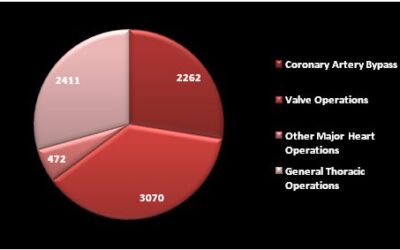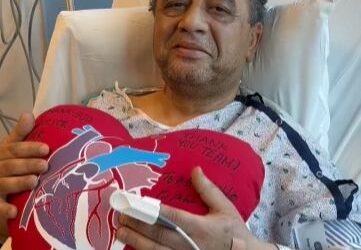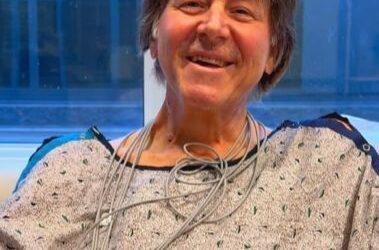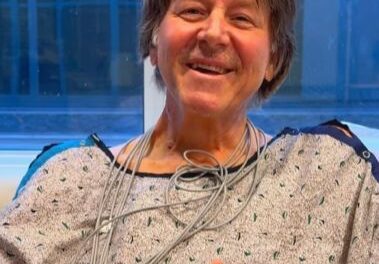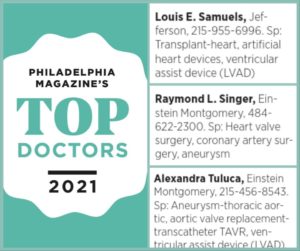Lower extremity peripheral artery disease (PAD) effects >230 million adults worldwide and is associated with increased risk of various adverse clinical outcomes, including coronary artery disease, myocardial infarction, congestive heart failure, stroke, and amputation.
This 69-year old patient presented with leg claudication, which is a type of leg muscle pain that occurs due to lack of oxygen, and that’s triggered by activity and relieved by rest. Claudication is most often a symptom of peripheral artery disease.
The patient’s vascular surgeon obtained a cardiology screening evaluation which led to a positive stress test and cardiac catheterization that showed life-threatening left main and three- vessel coronary artery disease —with no history of angina, diabetes, or MI! His only risk factors were PAD and smoking.
The patient underwent triple vessel coronary artery bypass surgery with bilateral internal mammary artery grafts. He is going home on postoperative day #4 and will follow-up with his vascular surgeon for the leg bypass surgery within the next 6 weeks.
Recent Posts
When is the Best Time to Exercise?
This video talks about the advantages of exercising in the morning. Morning workouts release endorphins and improve blood flow, helping you to feel more energized and mentally sharp throughout your day. There are fewer distractions in the morning and it makes it...
May is Mental Health Awareness Month
Let’s take this opportunity to reflect on something essential, yet often overlooked in professional environments: our mental well-being. In a world that values productivity and performance, it’s easy to forget that behind every deadline, meeting, or project is a human...
10 Jefferson Hospitals Earn an “A” Safety Grade
We are incredibly proud to announce that 10 Jefferson Health hospitals have received an "A" Hospital Safety Grade from The Leapfrog Group for Spring 2025. This recognition underscores our commitment to improve patient lives and prioritize their safety across our...
Patient Outcomes – May 1, 2025
Nothing can be more important than knowing the experience level of your surgeon. Generally speaking, the more you do something, the better you become! Since entering practice in 1992, I have performed over 8,215 major heart and lung operations and numerous minor...
Day #5 After CABG Surgery
With the patient’s permission, this video discusses the post-operative journey of an individual who underwent urgent/emergent conventional sternotomy, triple-vessel coronary artery bypass graft (CABG) surgery, after developing severe chest pain with ECG changes during...
Left Thoracotomy for Complex Mitral Valve Replacement
This is a unique case of a 64-year-old man who had a history of Hodgkins disease with mantle radiation to his chest. I had performed a surgical aortic valve replacement 10 years prior with a biological valve that is still working well. The patient now presented with...
Featured
Pages
- Learn about heart valves. Heart Valves
- Read testimonials. Testimonials
- Did you know I have a consulting firm? Singer Heart/Lung Consulting
- Check out my TedTalk! Defining Success
Links
- Links page with more information about your heart. Links
- Dr. Adam Pick's Site: heart-valve-surgery.com




